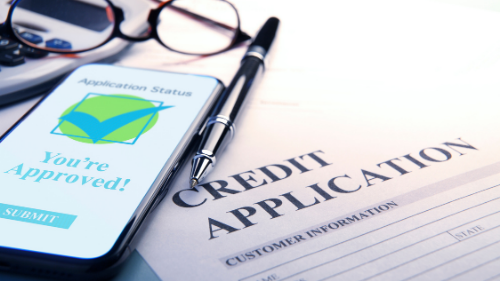If you read any of my earlier blogs on credit score, by now you should understand how credit scores work, and you should also know that it’s better to have a higher score as opposed to a lower one. Lenders, employers, landlords, and others will likely look at your credit score before deciding whether or not to continue doing business with you. So your credit score is definitely an important number to guard.
Just think about it, if your credit score is too low you may not be able to get a credit card, a car loan to buy your dream car, or a mortgage to purchase your dream home. It stands to reason that you should do everything you can to maintain a great score.
Your credit score is determined using different criteria but It basically comes down to how much you earn, how much you owe and when you pay your bills. For example, if you are late paying your telephone bill, your phone carrier may report it to one or more credit reporting agencies (not all creditors report to the same agencies). When this happens, you will get a mark against you on your credit report. And this, in turn, has a negative impact on your creditworthiness.
However, there are other things that can negatively impact your scores that you may not have considered, such as:
- Lack of a credit history – you have NO credit products so nothing is reported.
- Total outstanding debt that is too high — your credit usage exceeds 30%.
- Having too many credit accounts at any one time that are not being used.
- Having bankruptcy on your record.
- Credit history is not old enough – recently start building credit.
- Having too much debt for your income (commonly referred to as the debt-to-income ratio).
- Closing too many accounts within a short time frame.
- Phone Bills and utility bills that go unpaid.
Each of the above things can raise a red flag on your credit report. How much any single one of these affects your credit score is hard to say, as each credit bureau uses a different formula for calculating their score. But despite the bureau, the more things you are doing on the list, the worse your credit score will suffer.
All is not gloom and doom when it comes to credit scores however, there is also a bright side.
So now that you have the list of things to avoid out of the way, it’s time to hear the positive stuff. The good news is that there are things you can do that have a positive effect on your credit score. On top of that, they will also save you money in the long run and improve your overall state of financial health. Here are a list of these things:
- Only apply for credit when you need it, and if you’re shopping around, don’t authorize a credit check until you like the terms that you are hearing.
- Do your best to space out credit applications when applying for new credit accounts.
- Buy things with cash instead of credit when you’re carrying a balance on your credit card
- Stick to a budget so you don’t spend more than you earn.
- Pay more than the minimum due on your credit cards.
- Build up a savings account so you have money for emergencies.
- Check your credit report for accuracy and make corrections where needed.
- Pay all of your bills on time
- Correct errors on your report promptly.
Now that you are aware of the dos and don’ts when it comes to your credit score, you can say goodbye to low credit scores.
[/et_pb_text][/et_pb_column][/et_pb_row][/et_pb_section]

